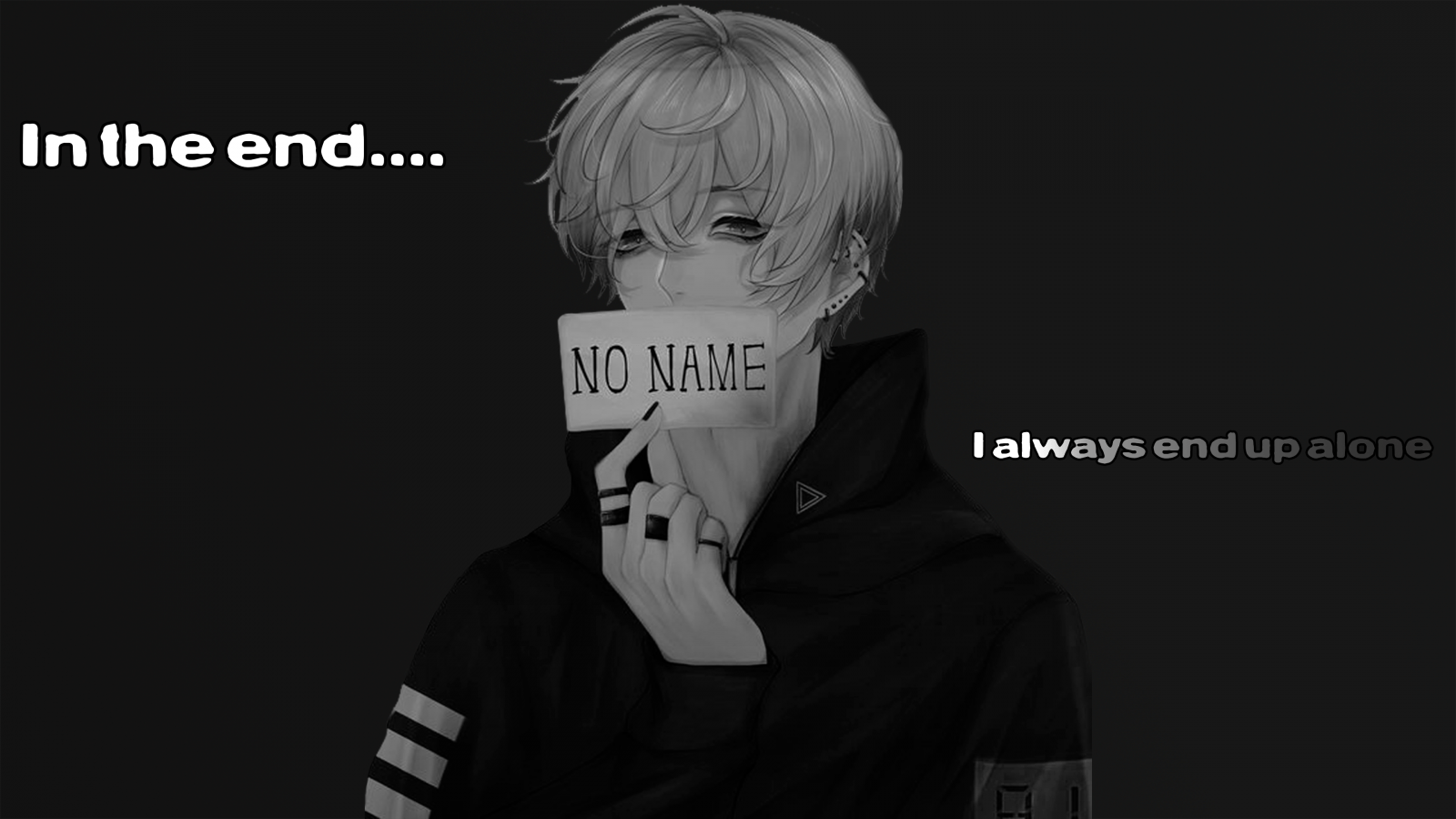The Allure of Melancholy: Understanding the Depressed Anime Boy Trope
Why are we drawn to characters shrouded in a veil of sadness? In the world of anime, the "depressed sad anime boy" is more than a fleeting trope; it's a recurring archetype that has captivated audiences for decades. These characters, often cloaked in melancholy and introspection, resonate with viewers on a deeper level, prompting us to examine the allure of their quiet struggles.
From the quiet loner lost in thought to the brooding antihero grappling with a traumatic past, the "depressed anime boy" archetype takes many forms. Their sadness isn't merely a plot device; it's often intricately woven into their character development, shaping their motivations, relationships, and ultimately, their journeys of self-discovery. But what makes this trope so enduringly popular, and what does it say about our own fascination with melancholy?
The appeal of the "depressed anime boy" likely stems from a confluence of factors. In a society that often encourages stoicism, particularly for young men, these characters provide a sense of relatability for those who feel unseen or unheard. Their struggles with inner turmoil, social isolation, or the weight of expectations can mirror the experiences of many viewers, fostering a sense of connection and understanding.
Furthermore, the "depressed anime boy" often possesses hidden depths and untapped potential. Their melancholic exterior might mask a sharp intellect, a compassionate heart, or a wellspring of creativity. This contrast between outward sadness and inner complexity can be incredibly compelling, drawing viewers into their stories and rooting for them to overcome their personal demons.
Moreover, the exploration of darker emotions through these characters can be cathartic for both creators and audiences. Anime, as a medium, often delves into complex themes and emotional landscapes, providing a safe space to explore difficult topics like depression, loss, and isolation. By witnessing these characters grapple with their inner struggles, viewers can gain new perspectives on their own emotions and find solace in shared experiences.
It's crucial, however, to distinguish between romanticizing depression and exploring it as a nuanced human experience. While the "depressed anime boy" trope can be a powerful tool for storytelling and emotional connection, it's essential to remember that depression is a serious mental health condition. These characters should not be misconstrued as glorifying sadness or promoting it as an ideal. Instead, their stories should serve as a starting point for open conversations about mental health, encouraging empathy and understanding for those struggling with similar emotions in real life.
Ultimately, the enduring popularity of the "depressed anime boy" speaks to our own complex relationship with sadness and the human desire for connection. These characters, flawed and vulnerable as they may be, remind us that we are not alone in our struggles. By exploring the depths of their melancholy, anime offers a powerful platform to discuss mental health, encourage empathy, and perhaps even find solace in the shared language of human emotion.
Unleash your inner artist mulan princess coloring pages for every fan
Timeless expressions exploring clock tattoos for women
Dominate fifa unleash your perfect team name














